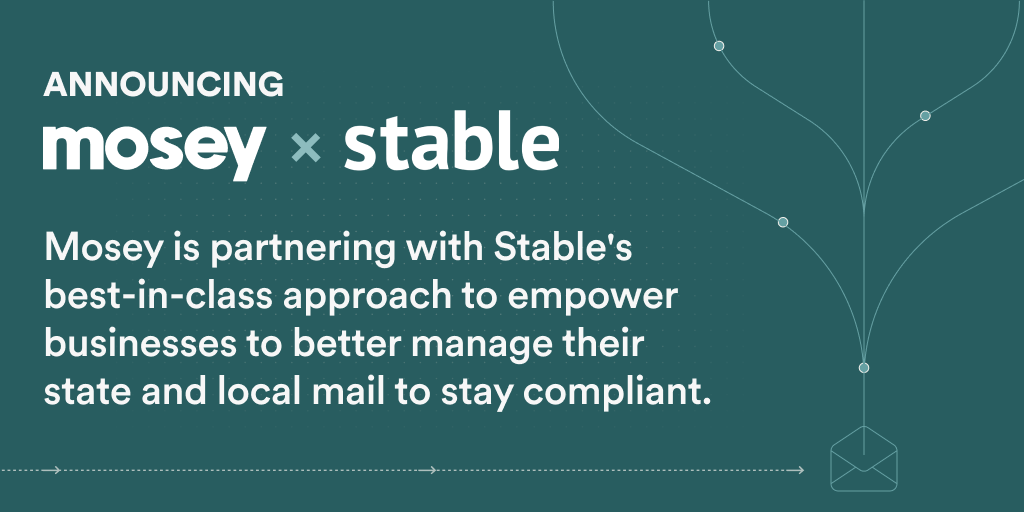When your company hires employees in California, you are required to comply with federal, state, and local employment laws. There are a variety of human resources and labor policies in the workplace that differ by state. Through your employee handbook, employers can easily document and distribute the correct policies to their employees to comply with the laws of each state.
Creating your California Employee Handbook is a useful way to explain important policies and procedures, mitigate legal risk, and introduce employees to the expectations and operating practices of the organization.
Mosey has compiled the relevant policies a company with employees in California must consider.
Launch your employee handbook in minutes.
Everything you need to automate a compliant handbook for all 50 states.
California Employee Handbook Policies
There are 15 state and local employee handbook policies in California.
Privacy
California Social Media Privacy Policy
Generally, Employer is prohibited from accessing your personal social media accounts and will not discipline or terminate an employee for refusing to disclose their social media login information or for denying to provide access to their social media accounts.
Paid Time Off
California Sick Leave Policy
You are entitled to earn one hour of paid sick leave for every 30 hours worked, up to a maximum 40 hours per year. After 90 days of employment you may use paid sick leave for health needs, preventive care, or issues related to domestic violence, sexual assault, or stalking.
Leaves of Absence
California Volunteer Emergency Responder Leave Policy
You are permitted to take job-protected leave to perform emergency duty as a volunteer firefighter, reserve peace officer, or as an emergency rescue personnel.
California Military Spouse Leave Policy
Employer is required to provide employees up to 10 days of unpaid leave while a spouse is on leave from deployment during a period of military conflict.
California Volunteer Emergency Responder Training Leave
If you are a volunteer firefighter, a reserve peace officer, or as emergency rescue personnel, you are entitled to take up to 14 working days of job-protected leave per year for fire, law enforcement training, or emergency rescue training.
California School Visitation Leave Policy
Employer provides employees with up to 40 hours of unpaid leave each year to participate in activities at a child’s school or daycare.
California Military Service Leave Policy
Employees who are in the Guard, Reserves, or Naval Militia are entitled to up to 17 days of unpaid leave per year for military training, drills, encampment, naval cruises, special exercises, or similar activities.
California Jury Duty Leave Policy
You are entitled to job-protected leave to serve as a juror. Unless directed otherwise by your manager, you should return to work at the completion of jury duty, even if for a partial day.
California Family Rights Act Leave Policy
Under the California Family Rights Act (CFRA), eligible Employer employees are permitted to take up to a total of 12 weeks of job-protected leave during a 12-month period. CFRA leave itself is unpaid, but wage replacement may be provided if CFRA leave is taken concurrently with Paid Family Leave or Disability Insurance (SDI).
Eligible employees can take the leave for one or more of the following reasons:
- The birth of a child or adoption or foster care placement of a child.
- To care for an immediate family member (spouse, child, or parent) with a serious health condition.
- When the employee is unable to work because of a serious health condition.
A “serious health condition” is an illness, injury, impairment, or physical or mental condition that causes or requires:
- Any period of incapacity or treatment in connection with, or after inpatient care;
- Any period of incapacity requiring absence from work, school, or other regular daily activities, of more than three consecutive calendar days;
- Ongoing treatment by or under the supervision of a health care provider for a chronic or long-term health condition that is incurable; or
- Restorative dental or plastic surgery after an accident or injury.
California Pregnancy Disability Leave Policy
You are permitted to take up to four months of job-protected leave for disability relating to pregnancy, childbirth, or related conditions.
California Organ Donation Leave Policy
You are permitted to take up to 30 days of paid time-off and up to 30 days of additional unpaid time-off to donate an organ in any one-year period.
California Domestic Violence Victim Leave Policy
Employer permits victims of domestic abuse the opportunity to take unpaid time off from work in order to seek medical treatment, obtain services from a rape crisis center or domestic violence shelter, engage in counseling, or engage in safety planning or relocate.
California Voting Leave Policy
Employer provides to all employees as much time off as needed in order to vote. However, only two-hours are required to be paid time off.
Employer will provide 10-days notice prior to any statewide election of an employee’s right to take time off to vote in such elections.
California Bone Marrow Donation Leave
Employer is required to provide employees with up to five days of paid time off within a one-year period to donate bone marrow.
California Bereavement Leave Policy
Employer is required to provide employees with five days of leave in the event of the death of an employee’s spouse, child, parent, sibling, grandparent, grandchild, domestic partner, or parent-in-law.
Employee handbook builder
Build your employee handbook in every state and keep it up to date automatically with Mosey.
Federal Employee Handbook Policies
Regardless of which states you have employees in, there are required federal policies that must be included in your employee handbook. In addition to any state-specific policies, your employee handbook for California should contain the following federal policies.
- Anti-Harassment Policy
- Anti-Sexual Harassment Policy
- Anti-Retaliation Policy
- Equal Employment Opportunity Policy
- Reasonable Accommodation Policy
Handbook Policy Best Practices
In addition to the required federal policies, the following policies are best practices to include in your employee handbook.
- Weapons Policy
- Disciplinary Action Policy
- Prohibited Conduct Policy
- Violations Reporting Policy
- Workplace Violence Prevention Policy
- At-Will Employment




